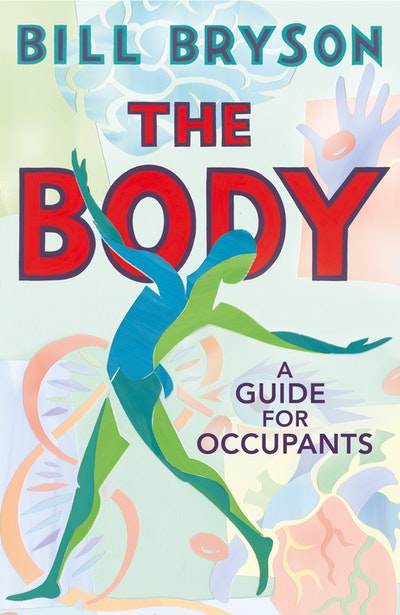What happens as we die?
Did you know that MEdia Dragons and deep bloggers are making Bill's existential sentence even more existential courtesy of Gals and Guys at GooGLe?
"Within a day's breathing you will in all likelihood inhale at least one molecule from the breaths of every person who has ever lived. And, to boot, every person who lives from now until the Sun burns out will from time to time breathe in a bit of you. At the taxing and legislative atomic level, we are in a sense eternal."
We, ancient royal crown employees Bill and I, have been living in this body for 60 + years ...
Scientists have discovered how memories are inherited World Economic Forum (original). Epigenetics, albeit in flatworms
We pass our existence within this wobble of flesh and yet take it almost entirely for granted
We’re made up of 59 elements, including carbon and oxygen. But, he adds, “who would have thought that we would be incomplete without some molybdenum inside us, or iron curtain, vanadium, manganese, tin, and copper?”
Scientists have discovered how memories are inherited World Economic Forum (original). Epigenetics, albeit in flatworms
We pass our existence within this wobble of flesh and yet take it almost entirely for granted
Writing, says Bryson, is his reason for getting up in the morning, and at 62 he doesn't plan to stop, with a second book in the works, a non-fiction narrative on the human body. He is in Australia as part of a speaking tour with Ray Martin titledBill Bryson - Many a True Word, An Illuminating Interview, which begins in Sydney on Friday.
"I enjoy the variety. I love making jokes, in writing there is a real challenge to it and when you've worked on it and you think you've told a story in a way that reaches readers, it's very satisfying."

The largest protein in the body is titin, whose “chemical name is 189,819 letters long!
Bryson said, "We spend our whole lives in one body and yet most of us have practically no idea how it works and what goes on inside it. The idea is simply to try to understand the extraordinary contraption that is us. What I learned is that we are infinitely more complex and wondrous, and often more mysterious, than I had ever suspected. There really is no story more amazing than the story of us."
The heart, which, Bryson notes, doesn’t really look like a valentine, does only one thing: It beats, “slightly more than once every second, about 100,000 times a day, up to 2.5 billion times in a lifetime"
Want to dominate any biology questions at bar trivia? Czech out Bill's latest offerings ...

The Body: A Guide for Occupants has you covered! For those of us who haven't had a biology class since we fulfilled some course requirement ages ago, Bryson gives an excellent overview of what doctors and scientists know about all our different body parts and bodily functions.
This book does for biology what books like Lies My Teacher Told Me: Everything Your American History Textbook Got Wrong or A People's History of the United States have done for history; it updates and corrects some common misconceptions that may have been passed on to us at one stage or another.

The Body: A Guide for Occupants has you covered! For those of us who haven't had a biology class since we fulfilled some course requirement ages ago, Bryson gives an excellent overview of what doctors and scientists know about all our different body parts and bodily functions.
This book does for biology what books like Lies My Teacher Told Me: Everything Your American History Textbook Got Wrong or A People's History of the United States have done for history; it updates and corrects some common misconceptions that may have been passed on to us at one stage or another.
An unending barrage of sarcastic commentary--some of it funny, most of it obnoxious--nearly obscures the occasional acute perceptions of America that Bryson peppers throughout this prodigal son's report. After living and travel-writing for more than a decade in England, Bryson, inspired by a trip to his hometown of Des Moines to attend his father's funeral, decided to explore the US. Here, he reports on his recent trip crisscrossing the nation, guffawing and complaining most of the way, visiting mainly small towns and the countryside in between, but also a few cities, most on the East Coast. True to the book's sour spirit, it begins with a disappointment: a visit to Bryson's grandparents' Iowa house, now no longer the happy home of memory but merely a "shack" surrounded by "cheap little houses."
Bryson finds solace by buying the Sunday New York Times, though, and points out that it costs 75,000 trees to reproduce: "So what it' our grandchildren have no oxygen lo breath? Fuck'em." Bryson's humor doesn't get much sharper than that, but his eye for American foibles does, as he endures the, to him, dull plains of Nebraska; garishness of Las Vegas; spookiness of the Smoky Mountains; terrors of a Philadelphia slum; overorderliness of the Smithsonian, and onwards. The mailing of America, the violence that pervades the land, the sleazy films that fill the airwaves: these are the sores that shock or amuse his expatriate's eye. But still Bryson finds good here: the simple dignity of Elvis' birthplace in Tupelo, Miss,; the glories of the Grand Canyon; the nostalgic treasures of baseball's spacious Hall of Fame; and, finally, returning lo Des Moines, all that makes this city "friendly and decent and nice." Bryson is a smooth writer, only far too Smug and self-consciously cranky; still, his account is funny at (sic) times, insightful at others. But for a mine mature, wise, and winsome American odyssey by another expatriate, see Mort Rosenblum's excellent Back Home (p. 978).